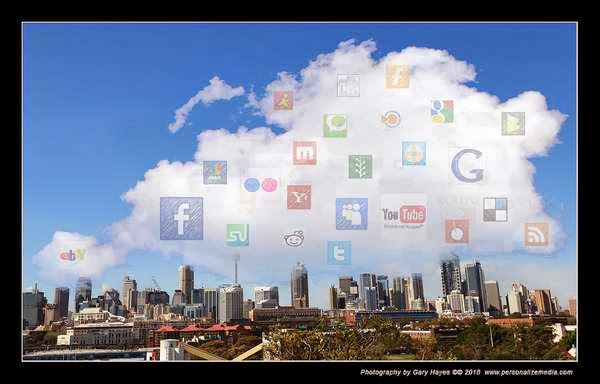
Good question, thanks Paula. In fact plenty of questions came up the other day as teachers sat around a table at Lalor Living & Learning Centre Inc. We were talking about “cloud computing” – when your data sits on other people’s computers.
So what is “The Cloud”?
Essentially it is a move away from storing files and running applications on your local computer. Now you can use data networks in different physical locations to both store files and run applications.
- The cloud is partly for data storage, and partly for running applications.
- The cloud is kept in data factories all around the world.
Important questions to ask
- Who has permission to view or edit your document?
- Can you trust the company?
- What’s in that End User License Agreement (EULA) you “signed”?
- Do you still need to backup files on your own local computer?
Issues around the cloud:
- safety, security, and privacy,
- access and permissions.
Examples of cloud computing:
- google drive – lets you store and share files as well as running applications in your web browser,
- dropbox lets you store and share files and folders,
- iCloud (apple)
What’s the difference between google drive and dropbox?
- An app like dropbox keeps your files synchronised between all your different devices and computers. For example you can share your microsoft word documents with colleagues, or you could make sure you have the same files on your laptop and desktop computer.
- An app like google drive does the same, and also gives you applications for editing these files. Google drive has an “office suite”, with word processor, spreadsheet, presentation slides and drawing tools – all within the web browser.
- Microsoft also have their own versions of this, known as “Skydrive” (storage) and “Office 365” (web-based office apps).
More references that could be useful
- Common Craft have some great “how to” videos, including this one on cloud computing. (They used to be free to embed, but now there’s membership fees.)
- How do these massive “data centres” run? Google has some intriguing information here: “where the internet lives“.]
Photo by Gary Hayes (creative commons at flickr) – BY-NC-SA.
